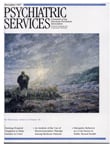Addiction Treatment: Avoiding Pitfalls—A Case Approach
In the last two decades, treatment of addictions has emerged as a specialty that requires clinical expertise and astute evaluation and assessment skills. Even professionals working on the same clinical team often approach treatment of a client who has substance-related disorders from the perspective of their own disciplines. However well intentioned, this approach has often led to diverse methods of treating a client.
A distinguished group of physicians, the Committee on Alcoholism and Addictions of the Group for the Advancement of Psychiatry, have written a publication with a case-vignette approach to illuminate and advise on the pitfalls that clinicians face during the diagnosis, treatment, and recovery of substance-abusing clients. This interesting and valuable format, with numerous case vignettes in every chapter, will help educate professionals with diverse backgrounds and is also user friendly. Clinicians, particularly physicians, will find the book a reference tool with a succinct, readable style.
The introductory overview gives the reader a capsule of the basic tenets of addiction treatment, and these tenets are woven into treatment strands throughout the book. The authors present common errors of technique as a learning methodology; a separate chapter discusses myths and misconceptions about addicted women.
The book essentially blends the psychiatric view of treatment of alcoholism and other addictions with current standard approaches used in the field of addictionology. The self-help philosophy of Alcoholics Anonymous is defined as an integral facet of treatment. However, the book does not proselytize the AA message. It provides a generalist view of the impact of addiction on the family and the danger of using euphemisms in treatment.
Clinicians struggling with clients who have the complex situation of dual disorders will find this book particularly helpful as it addresses the treatment of problems concurrently. I would have enjoyed reading more on the definition of sobriety, but the information given is in keeping with the style and brevity of the presentations. The references, although some are older, provide a rich history of how treatment of addictive disorders has emerged as a clinical specialty. The book is rooted in theory, but the clinical practice and recommendations presented, particularly in the summary chapter, are useful and timely.
Addiction Treatment: Avoiding Pitfalls is not a theoretical reference work, and it is not intimidating. It is a valuable addition to a clinician's personal library. Used correctly, it can assist a health care professional in caring for a difficult disease that has tragic consequences if left untreated.
Ms. White is nurse executive at Worcester (Mass.) State Hospital and former director of the dual diagnosis program and chemical dependency services at Pembroke (Mass.) Hospital.



